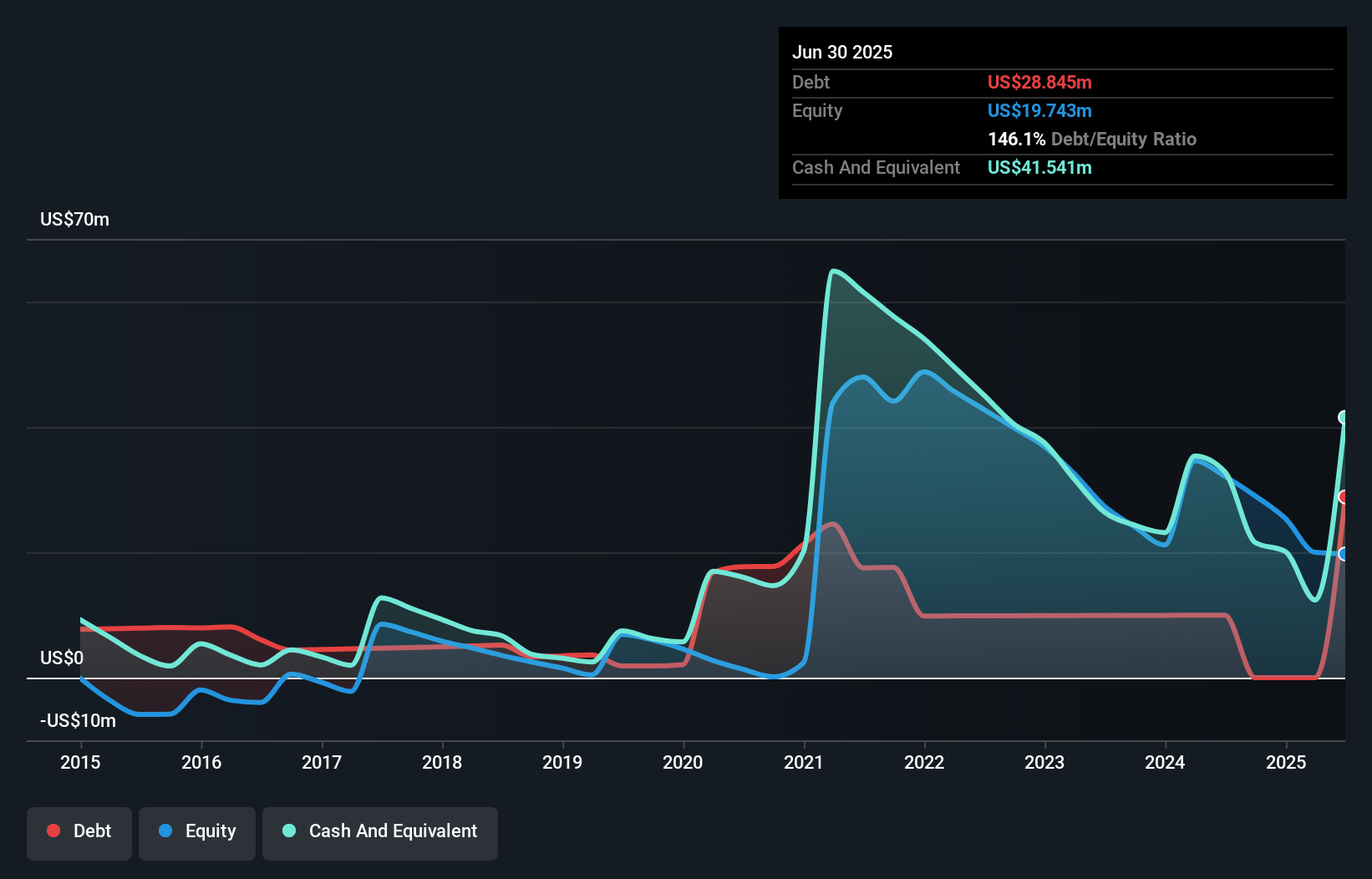Is ClearPoint Neuro (NASDAQ:CLPT) A Risky Investment?
Legendary fund manager Li Lu (who Charlie Munger backed) once said, 'The biggest investment risk is not the volatility of prices, but whether you will suffer a permanent loss of capital.' It's only natural to consider a company's balance sheet when you examine how risky it is, since debt is often involved when a business collapses. We note that ClearPoint Neuro, Inc. (NASDAQ:CLPT) does have debt on its balance sheet. But the real question is whether this debt is making the company risky.
What Risk Does Debt Bring?
Debt is a tool to help businesses grow, but if a business is incapable of paying off its lenders, then it exists at their mercy. In the worst case scenario, a company can go bankrupt if it cannot pay its creditors. However, a more common (but still painful) scenario is that it has to raise new equity capital at a low price, thus permanently diluting shareholders. By replacing dilution, though, debt can be an extremely good tool for businesses that need capital to invest in growth at high rates of return. When we examine debt levels, we first consider both cash and debt levels, together.
What Is ClearPoint Neuro's Debt?
The image below, which you can click on for greater detail, shows that at June 2025 ClearPoint Neuro had debt of US$28.8m, up from US$9.98m in one year. However, it does have US$41.5m in cash offsetting this, leading to net cash of US$12.7m.

A Look At ClearPoint Neuro's Liabilities
According to the last reported balance sheet, ClearPoint Neuro had liabilities of US$7.40m due within 12 months, and liabilities of US$35.7m due beyond 12 months. Offsetting this, it had US$41.5m in cash and US$4.85m in receivables that were due within 12 months. So it actually has US$3.26m more liquid assets than total liabilities.
Having regard to ClearPoint Neuro's size, it seems that its liquid assets are well balanced with its total liabilities. So it's very unlikely that the US$660.1m company is short on cash, but still worth keeping an eye on the balance sheet. Simply put, the fact that ClearPoint Neuro has more cash than debt is arguably a good indication that it can manage its debt safely. There's no doubt that we learn most about debt from the balance sheet. But ultimately the future profitability of the business will decide if ClearPoint Neuro can strengthen its balance sheet over time. So if you want to see what the professionals think, you might find this free report on analyst profit forecasts to be interesting.
See our latest analysis for ClearPoint Neuro
Over 12 months, ClearPoint Neuro reported revenue of US$34m, which is a gain of 20%, although it did not report any earnings before interest and tax. That rate of growth is a bit slow for our taste, but it takes all types to make a world.
So How Risky Is ClearPoint Neuro?
Statistically speaking companies that lose money are riskier than those that make money. And the fact is that over the last twelve months ClearPoint Neuro lost money at the earnings before interest and tax (EBIT) line. And over the same period it saw negative free cash outflow of US$12m and booked a US$22m accounting loss. While this does make the company a bit risky, it's important to remember it has net cash of US$12.7m. That means it could keep spending at its current rate for more than two years. Even though its balance sheet seems sufficiently liquid, debt always makes us a little nervous if a company doesn't produce free cash flow regularly. There's no doubt that we learn most about debt from the balance sheet. However, not all investment risk resides within the balance sheet - far from it. For example, we've discovered 2 warning signs for ClearPoint Neuro (1 is concerning!) that you should be aware of before investing here.
If you're interested in investing in businesses that can grow profits without the burden of debt, then check out this free list of growing businesses that have net cash on the balance sheet.
Have feedback on this article? Concerned about the content? Get in touch with us directly. Alternatively, email editorial-team (at) simplywallst.com.
This article by Simply Wall St is general in nature. We provide commentary based on historical data and analyst forecasts only using an unbiased methodology and our articles are not intended to be financial advice. It does not constitute a recommendation to buy or sell any stock, and does not take account of your objectives, or your financial situation. We aim to bring you long-term focused analysis driven by fundamental data. Note that our analysis may not factor in the latest price-sensitive company announcements or qualitative material. Simply Wall St has no position in any stocks mentioned.
 Nasdaq
Nasdaq Wall Street Journal
Wall Street Journal